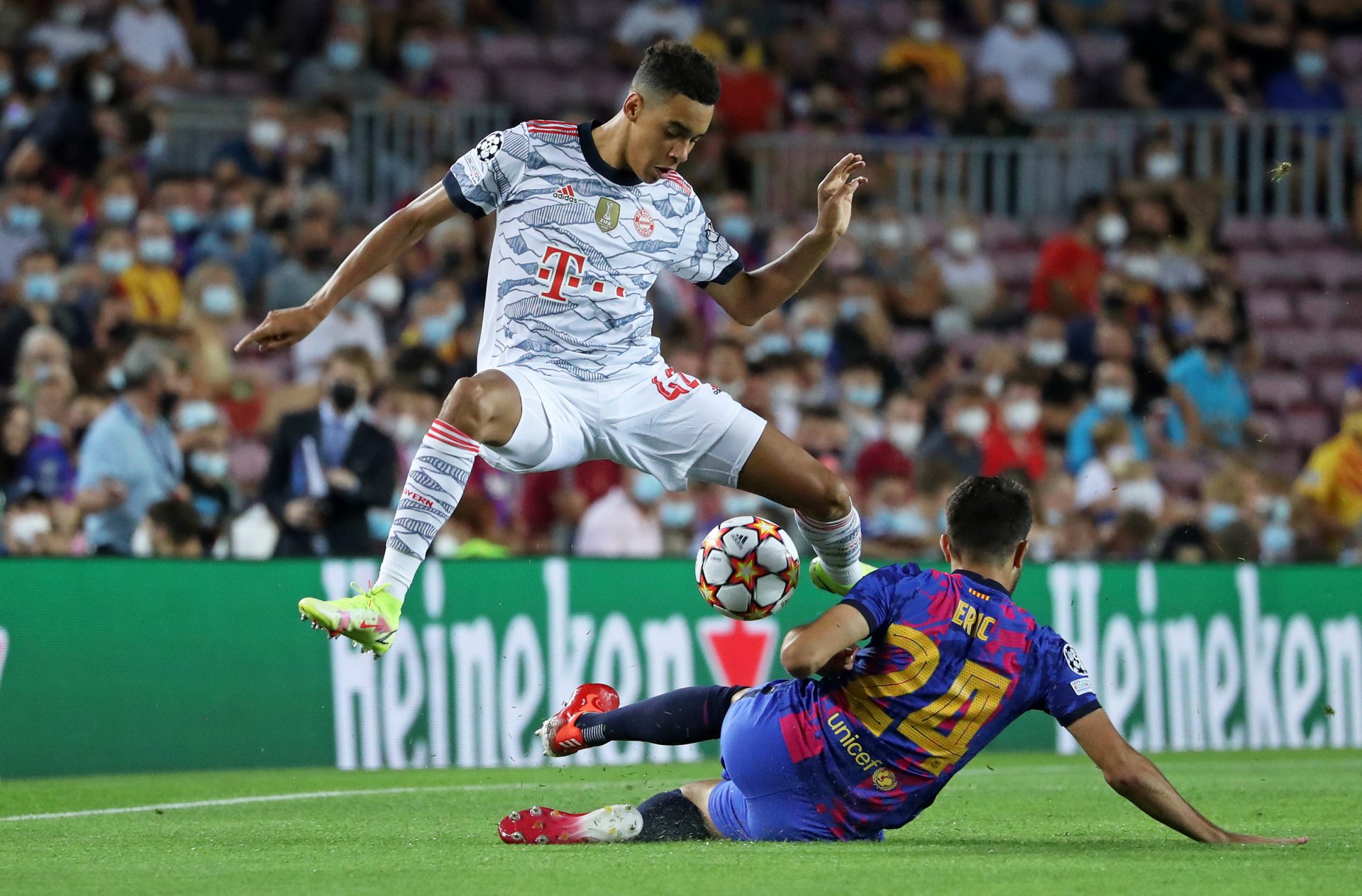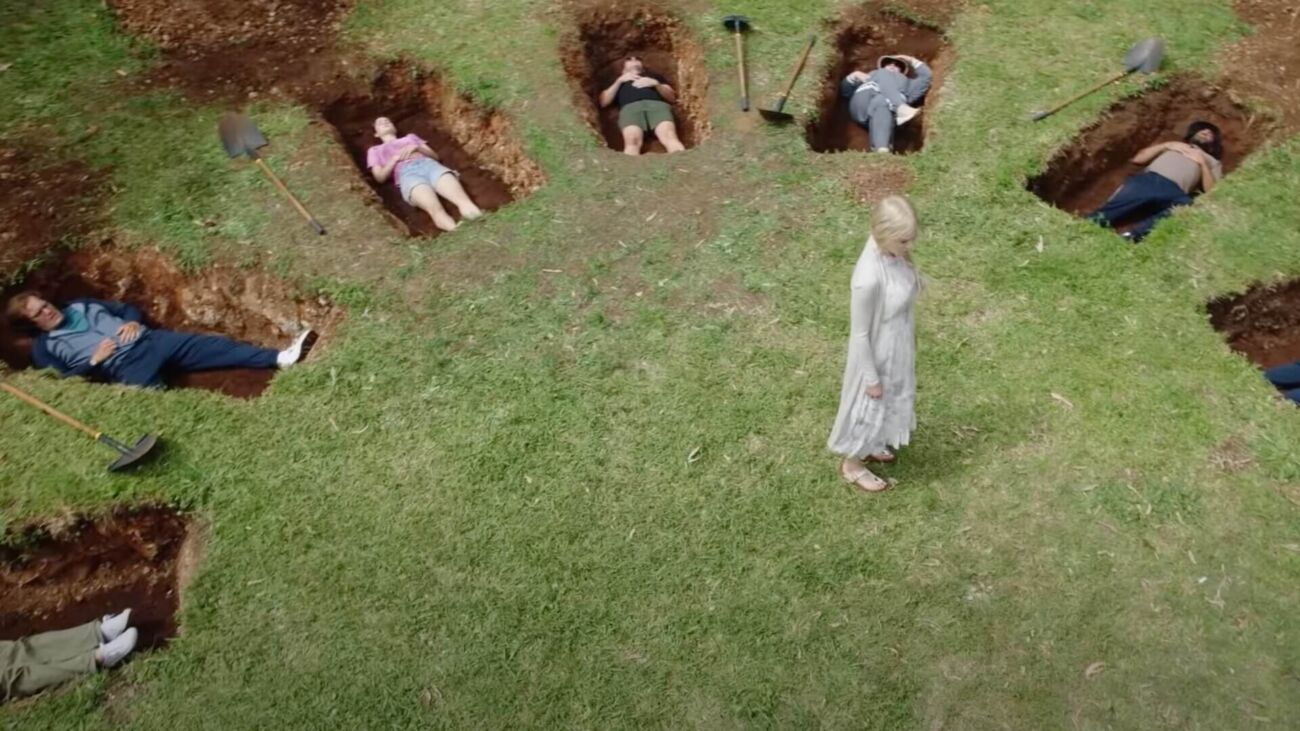
After the summer when Emma Raducanu went from A level maths hopeful to a Grand Slam winner at age 18, Europe is awash with the wonder of youth on the football fields.
If you follow the Champions League you could not have missed last week’s destruction of Barcelona at the Camp Nou by Bayern Munich. No surprise, of course, that Thomas Müller and Robert Lewandowski were the scorers, but the highlight was the dancing feet of the Wunderkind, Jamal Musiala.
Don’t take my word for that. Thomas Müller diverted journalists after the game to “Musiala, the magician of this game”.
The boy was equally magical in Bayern’s 4-1 away win in Leipzig three nights earlier. So balanced is this 18-year-old, so versatile, that no-one yet knows his ideal position, or whose place he will eclipse as he matures.
There is symmetry between Raducanu and Musiala. Both learned their games south of London. Both were born abroad. Both owe their genes to mixed heritage. Emma, born in Canada, has a Romanian father and a Chinese mother, who settled in England when she was two.
Jamal was born three months later than Raducanu, in Stuttgart to a British-Nigerian father and a German mother. He matured in England where his mother took a teaching role in Southampton when he was seven.
In sports, note the example of Tiger Woods, there is no such place as a geographical breeding ground. Bill Shankly once observed that “coaches do not make great footballers, mothers and fathers do.”
He said that in connection to Trevor Francis, the son of a Plymouth gas fitter, Trevor was dubbed “St Francis of St Andrews” after scoring four goals in one game for Birmingham City against Bolton Wanderers at Birmingham’s St Andrews stadium.
Francis, then 16, went on to become the first million-pound transfer. And 50 years after his Birmingham days another starlet, Jude Bellingham became briefly a Birmingham teenage sensation. Bellingham, now 18, is a Borussia Dortmund player, and a full England international.
Germany’s Bundesliga is one land of opportunity for youth, but so are France, Belgium, even Italy. They are scouted in primary school, signed when it is legal under European law. We shouldn’t forget La Masia, the acclaimed Barça academy which schooled Lionel Messi, Pep Guardiola, Andrés Iniesta, Xavi Hernández and a generation of gifted adolescents.
At its best, La Masia gave them Johan Cruyff ’s way of playing, alongside classroom study intended to teach them how to handle fame and fortune. It might be said today that Barça squandered that philosophy through financial mismanagement while the rest of Europe adopted kindergarten recruitment.
It is, however, nothing new. You could literally make an A to Z of football youth through the ages. No record for precocity is safe.
Italy’s Amedeo Amadei, born in 1921, debuted for AS Roma at 15 years and 280 days. He became known as Ottavo Re di Roma, the Eighth King of Rome, because of his goals in a long career from 1936-1956 for Roma, Atalanta, Inter and Napoli.
Six decades later, UEFA now incorporates psychology and psychiatry in its coaching licensing. ‘Understanding Teenage Brains – the scientific data and its relevance to football’ – is now offered on coaching courses addressed by British NHS-trained clinical psychiatrist Jagdish Basra.
‘Dr Jag’ lectures the coaches whose future might indeed depend upon understanding youths increasingly cut off from family roots being paid millions in foreign lands.
Mental health is a buzzword rather than a confirmed science in sports. As far back as the 1958 World Cup in Sweden, Brazil had a team psychologist. However, Dr Joao Carvalhaes was overruled when he suggested the coach drop two players he considered temperamentally unsuited to the competition.
One was Pelé, the other Garrincha. The coach told the psychologist: “You may be right. The thing is you don’t know anything about football”. Pelé, then 17, and Garrincha, 24, went on to win that World Cup and the next, and in Pelé’s case a defining third World Cup during a career of a thousand games.
Birmingham City manager Freddie Goodwin, incidentally, was similarly advised by an American psychologist Bruce Ogilvie, that Francis would never make a career in football, based upon a 190-point questionnaire the professor prepared for the players.
The conundrum of psychology and precocity is a science in itself. Can you imagine the reaction from Shankly, Bob Paisley or the knights Alf Ramsey, Matt Busby or Alex Ferguson if told a shrink would advise them when the time was ripe to blood a youngster?
Right now there are a couple of likely Norwegian lads who pretty much the whole of Europe bid for in their schooldays. One is Erling Haaland, temporarily of Borussia Dortmund. The other is Martin Ødegaard who was playing men’s football at 13, made his Norwegian league debut at 15, and the national team in the same year.
“Obviously there is a beautiful bride,” said Bayern Munich chief executive Karl-Heinz Rummenigge when his club courted the Ødegaard family along with most of Europe’s elite. “We are one of many grooms waiting on the doorstep hoping he will choose us.”
He and his father opted instead for Real Madrid who paid the fee and a €38,000 weekly salary to the then 15-year-old. Ødegaard, now 22, was sold this summer to Arsenal.
He scored a sumptuous match-winning free-kick at Burnley last week.



